|
|
Post by tardis218 on Jun 17, 2016 1:14:11 GMT
It's late July/early August of 1914.
Austria declared war on Serbia.
Russia mobilized.
And now the German ultimatum to Russia has expired.
Government officials of Germany, France, and the United Kingdom send telegrams back and fourth, hold meetings, and give ultimatums trying to find peace in Europe, even after the Kaiserreich declared war on Russia. It's only a matter on time before the French and British also declare war...
But what if, a proposal given to German Chancellor Bethmann by a colleague was accepted by the Chancellor? The proposal was to hold a referendum in Alsace-Lorraine to see if they wanted to become a Federal State within the Empire. Either way it would go, the idea was it would lessen French morale for liberating the lost territories of 1870, and might even prevent them from declaring war. And with this, the United Kingdom and the Empire wouldn't have the appetite for war in Europe. But, alas, Bethmann denied it.
And what if, the first order of aggression on the Western Front, invading a town in Luxembourg was stopped successfully? In OTL, the Kaiser personally gave the order for the 69th Infantry Regiment en route from Trier to not enter Luxembourg at 7 PM, August 1st. But, the message did not come in time, the unit entered the town, and once the message finally arrived they backed out, but by that point the government of Luxembourg had all ready alerted France and the UK.
And finally, what if, General Moltke did not convince the Kaiser that re-sending troops from France to Russia would be a horrible idea? In OTL, when the Kaiser said to Moltke that he wanted to rebase the 1 million troops called up in mobilization to the Eastern Front, Moltke said it would be disastrous, and talked the Kaiser out of it. Even though, in his memoirs, Chief of the Railway Division of the General Staff, General von Staab, said it could be possible. And that, Moltke regretted saying it wasn't possible. And on top of that, from 1905 to 1913 the General Staff did draw up an alternative plan to use the 1 million men on the Eastern Front.
3 PODs in the time of a few days could change all of Europe...welcome to Days of August: A WW1 TL
|
|
|
|
Post by tardis218 on Jun 17, 2016 1:17:48 GMT
NOTICE:
The TL's first post will be on Friday, June 17, at 5 PM. Why such a specific time? Well, this TL is going to be "real-time." So whatever the time it is within the post, I'll post it at the time. So for instance, if there's a General Staff meeting at 3 PM, I'll make a post on the General Staff meeting at 3 PM. |
|
shamiboy
Global Moderator   A happy mane
A happy mane
Posts: 51
|
Post by shamiboy on Jun 17, 2016 1:29:31 GMT
Looks interesting.
|
|
|
|
Post by tardis218 on Jun 17, 2016 21:04:36 GMT
Outside Kaiser’s Palace, August 1, 5 PM
A crowd of thousands have gathered around the Kaiser’s Palace waiting for news on the war. Some, have been there for hours, others for minutes. The crows has seen an influx of people, now with the ends of the workers’ shifts. An electric and tense mood fills the crowd. Some say that Russia has asked for an extent for the ultimatum. Finally, at 5 PM, a policeman in a traditional Prussian uniform, Pickelhaube and all, walked up to the palace gates and announced mobilization. The crowd cheered and started to sing the national anthem Gott mit uns. Cars drove through the Unter den Linden with officers standing in them, waving handkerchiefs and shouting out Mobilization!. All sense of political division fall apart, it didn’t matter if one were a socialist or a monarchist, all that mattered was that the Kaiserreich was getting ready to defeat the hordes of Slavs coming their way, and you better be damn ready to pick up a gun and fight for the Empire. With this, the news was sent across the country, 1 million men ready to fight. They went to their depots, got issued equipment and formed into companies, companies into battalions, from there they were joined by cavalry, cook wagons medics, etc. These battalions had a specific timetable for every one of them to be sent on trains to form divisions, then corpses, then into armies ready to fight.  The announcement of mobilization The announcement of mobilization
|
|
|
|
Post by tardis218 on Jun 17, 2016 21:30:03 GMT
Chancellor’s Home, August 1, 5:30 PM
The Kaiser had been fuming in his Palace for days now. Even though the organized system set up by the Railroad Department of the General Staff was working all to plan, due to years of training for this very day, the reality of a two front war loomed on the Emperor. As time progresses throughout the evening, his telegrams got more and more agitated “Aha! the common cheat!” “Rot!” “He lies!” “Mr. Grey is a false dog!” “Twaddle!” “The rascal is crazy or an idiot!” Then, news came in about Russia. His anger peaked then, when he found out the news of how Russia mobilized two days earlier. And now they were at war, the optimistic plan was to get them prior to getting any mobilization done. But then, at the last minute a colleague of Chancellor Theobald von Bethmann-Hollweg came to beg to the man about one possible solution: Have a referendum in Alsace-Lorraine to see if they want to become a Federal State within the Empire. Either way it would go, it would lower the morale and reason of the French declaring war on the Germans. This would also give more time for Germany to deploy more troops to the Russian border, and only attack them if France were to stay neutral. This would also keep England out and lead the way for a German victory. The Chancellor sat in his office as the colleague went on about the plans. He didn’t particularly like the idea, but he let him bite. Slowly, as he got absorbed in the conversation he began to see some of the perks of it...  Chancellor Bethmann Chancellor Bethmann |
|
|
|
Post by tardis218 on Jun 17, 2016 22:50:20 GMT
Luxembourgish-German Border, August 1, 6:50 PM
Night slowly crept onto the sleepy little village of Troisvierges, known as Ulflingen in German. Outside it’s borders, on German territory stood the 69th Infantry Regiment en route from Trier. Their goal was to enter the town and occupy the railway and telegraph stations of the small town at 7 PM. But, at the final moment, an aid gave a message to Lieutenant Feldmann. Directly from the Kaiser himself, the invasion was called off. Feldmann summoned his battalion officers to inform their men about the halted invasion. Once the officers left his tent he looked over at the village, where cows grazed on hillside pastures, the stone streets were clean; where the world seemed at peace. As he took a swig of coffee and looked down at his newspaper he could only imagine what was going on in Berlin. |
|
|
|
Post by tardis218 on Jun 18, 2016 2:58:57 GMT
Kaiser’s Palace, August 1st, 11 PM
The city of Berlin glimmered in the night. Lights from the streetlamps and houses kept the medieval city out of darkness. The city, founded sometime in the 11th or 12th centuries, founded by Slavs grew into a magnificent city, one fit for a country toying with the peace of the world. Even as the night fully loomed over the city, it was still a bustling place. Cars moving down the roads, probably most of them being employees of the government rushing up and down the city to deliver new reports. While cavalry and soldiers marched to train stations, where the mighty steam engines roared to prepare for battle. In one car sat the German chancellor, looking out the window of the government owned vehicle to see civilians walking down the streets; talking. As if no war was looming overhead. Once at the 460+ year old palace that held the Kaiser, his driver opened the door and the Chancellor walked right into the palace, straight to the Kaiser’s room with a clutched piece of paper. Once there and introducing himself to the Emperor, he began to talk about an idea proposed to him by a colleague hours before. As he went on, the Kaiser ordered a messenger to be sent to the Foreign Ministry, and another to fetch General Moltke. 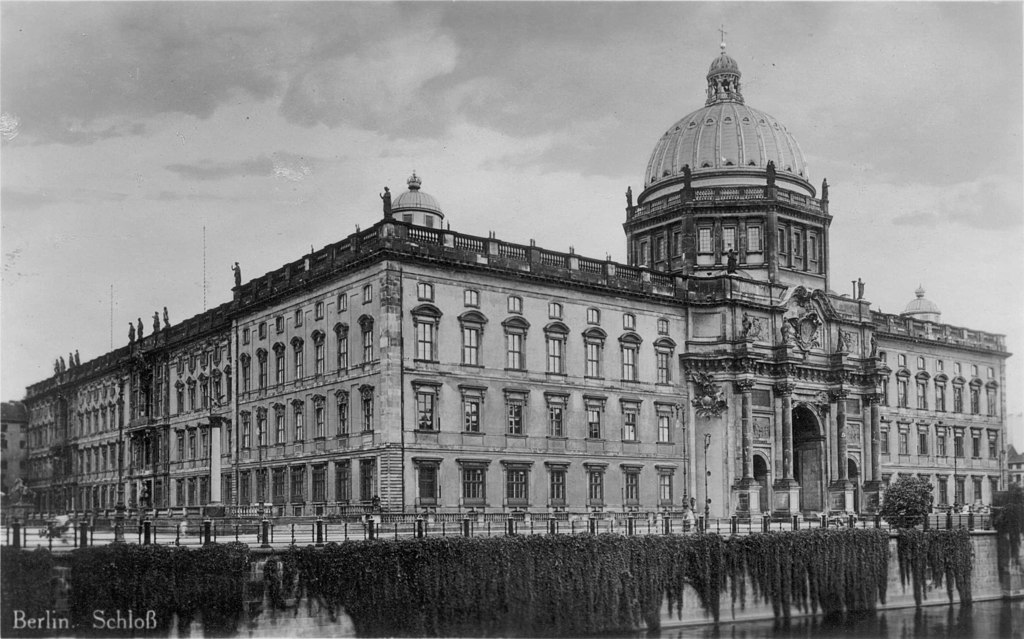 The Kaiser's Palace |
|
|
|
Post by tardis218 on Jun 18, 2016 4:20:05 GMT
NOTICE:
Seeing how I'm going to sleep, and I have several posts that need to be posted while I'm asleep, my system for this is that any posts like that, will be posted after I wake up. This will probably mess up the writing process, but I'll try my best to catch up as fast as possible. |
|
|
|
Post by tardis218 on Jun 18, 2016 14:47:43 GMT
Kaiser’s Room, August 2nd, 3 AM
The Kaiser, the Chancellor, General Moltke, several members of the General Staff, Foreign Minister Gottlieb von Jagow, Undersecretary Zimmerman, and an aide sat weary eyed in the Kaiser’s personal room. After hours of arguing and writing they all looked over at a piece of paper, clutched in the heart broken hands of Moltke. On it, was the final project of the colleague of the Chancellor. It was hotly debated amongst the several men, with the Kaiser and Chancellor fully convinced this was the right way to go, Jagow and Zimmermann on the fence, though, each one went onto one of the two sides in the end. While the General Staff members and Moltke were bitterly against it. The military men hated the idea. They reflected their troops; ready to fight the Slavic hordes and the French rival. But, in the end a few of them agreed. Moltke was the one who hated the idea the most, he wanted the war to come. He, for one, hated when the Kaiser canceled the invasion of Luxembourg, and this broke him even more. But, in the end, the aide wrote up and sent the telegram, after getting the paper away from Moltke, and copying it down in morse. It was to be sent to Wilhelm von Schoen, the German minister in France, and the German embassy in Paris, just in case At the beginning of the telegraph it said “get an aide to write it in German, or if possible, French. As soon as it is written down, hand it to the President.”
 Moltke the Younger Moltke the Younger |
|
|
|
Post by tardis218 on Jun 18, 2016 14:48:46 GMT
Paris, France, August 2, 3:30 AM
von Schoen rushed down the marble steps of the German embassy in Paris, managing to not collide with the pillars of the arch of the white building. His chauffeur drove him from 28 Rue Marbeau to Élysée Palace, where the French president resided. Clutching the typed letter in his hand, which was in French, he entered the palace. An aid sat at the front desk, wearily, he looked up, saw the Ambassador, and motioned another nearby aid, who left on command. The one said “Follow me” and brought him to the room of the President/Foreign Minister. The aid who was motioned at went up to the President’s office, and pale faced, said “The German ambassador is here.” Once in the room, von Schoen was motioned to sit down by President René Viviani. Giving the document to Vivani, he simply waited until he was finished reading. In a soft and tired voice, the President said to the ambassador that he was “excused”. Once he had closed the door, the President sent a telegram to Minister of War Adolphe Messimy and various other generals. The messages simply read “Urgent. Meet at Élysée Palace. President René Viviani.”
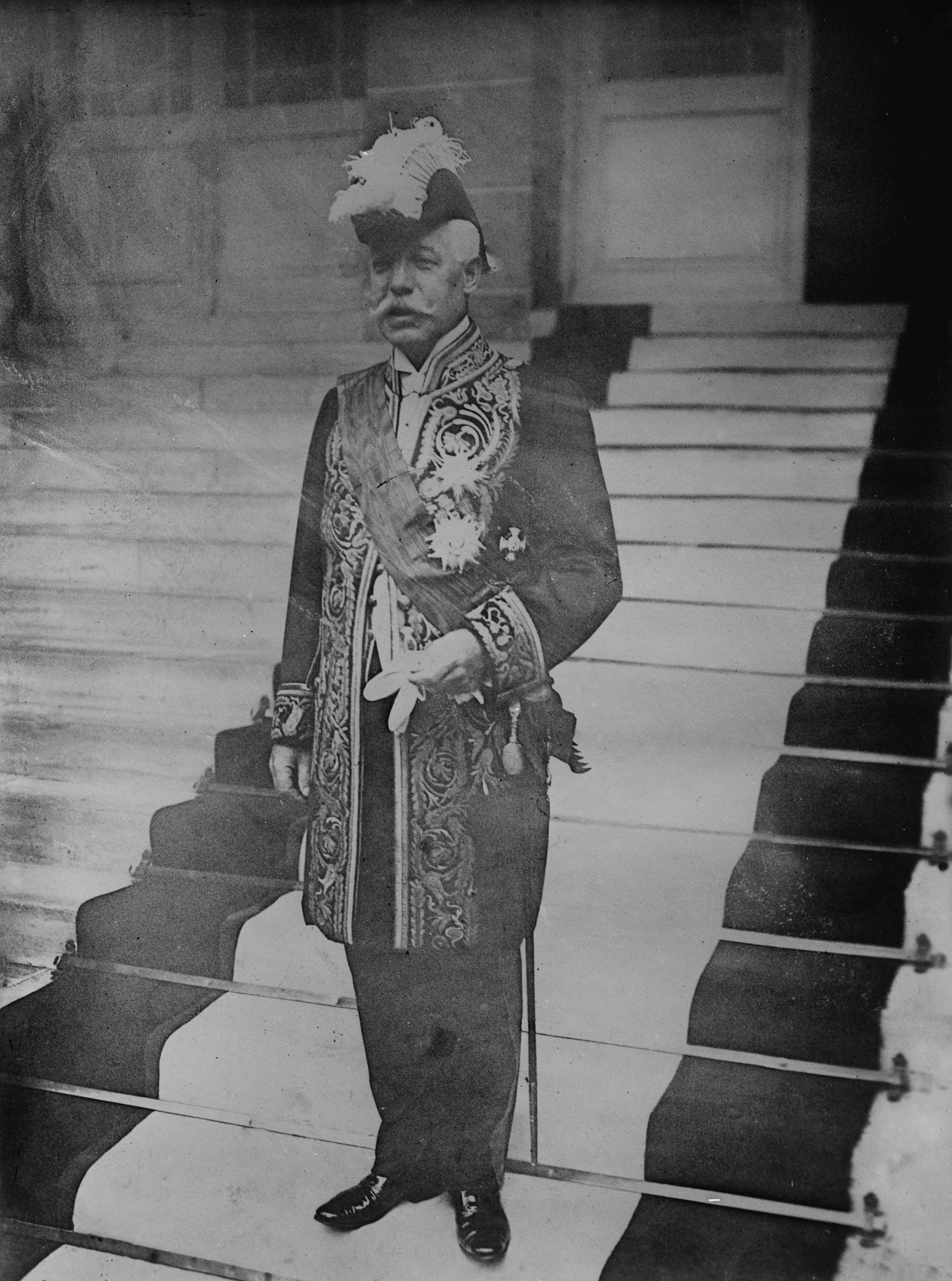 Ambassador von Schoen |
|
|
|
Post by tardis218 on Jun 18, 2016 15:29:29 GMT
Élysée Palace, August 2, 4 AM
Any telegrams that were to be sent to Germany were called off. Now, with no interfering messages, the Premier and his General Staff could talk about the message. Vivani read it out to the group in the conference room, where he finished, reading the last sentence, where proclaimed that they get 12 hours to respond if they want to the Parliament or not. And if not Germany would “increase hostilities along the Franco-German border” The faces of the generals looked somewhat displeased at it. Viviani himself didn’t want war, and sent troops away from the border at Alsace-Lorraine recently. They talked over it, some saying it was a grab to send more troops to the border, so that when war breaks out, they’ll have an advantage. But, in it, there were hints, some more obvious than others, that German troops would be pulled away from the border as well. This could help a plan, that troops would be mobilized in Western France, and sent to Paris, and then close to the border, ready for attack. Then the question came to who would count the votes. Many in the German military hated the plan, and that could influence how the votes are counted. In the end, a response telegram was sent to French Minister in Berlin, Jules Cambon, which was to be carried to the Kaiser’s Palace. Premier Viviani |
|
|
|
Post by Krall on Jun 18, 2016 15:35:55 GMT
Thread moved to AH Discussion at OP's request.
|
|
|
|
Post by tardis218 on Jun 18, 2016 15:51:00 GMT
Kaiser’s Room, 4:30 AM
The general staff were put awake when a aide came into the doors of the Kaiser’s room and said that the “French ambassador is here”. Quickly mopping themselves up after the message, Cambon walked into the room with a piece of paper. This time, it was in French. After Cambon left the room, the occupants got an aide from the Foreign Ministry that spoke French to read it outloud to them.They were intrigued. The French proposed that they would hold a Parliamentary session at 3 PM, if, German troops were pulled out of Alsace-Lorraine for the duration of vote, and that the votes were counted up by a third party, like members of the Foreign Ministry in Switzerland. This caused more arguing, and another round of voting. Finally, the vote was over, and the deal was accepted. A simple telegram reading “The proposal has been accepted” was sent. Moltke, was broke even more. The meeting ended, but not before Moltke issued the order of troops leaving the province, to be put onto the border of the territories. Moltke left, in tears, for his home. Ambassador Cambon |
|
|
|
Post by tardis218 on Jun 18, 2016 19:05:02 GMT
French National Assembly Building, 3 PM
All 601 MPs of the National Assembly were gathered today. The message given today was on a “German offer” and nothing else. Hushed whispers were spread throughout the room, along with a crowd of thousands outside it’s doors. A feeling of suspense were in both places. Outside, it was much more violent, though. Rivalry was rushing between the war, anti-war, right-wing, and leftist audience. With the assassination of Jean Jaurès, a leftist, anti-pacifist party leader of the French Socialist Party was killed in a cafe by a 29 year old man by the of Raoul Villain on July 31st. The assassin was a right-winger, as often they saw the leftists as dangers to French unity and nationalism. This made many voters and MPs of the FCP patriotic and want to fight the Germans. And now, on an afternoon in Paris, political divides have caused injury. Even people from the same party, like the FCP, were fighting each other due to their opinions on war. Eventually, once police intervened, and everything settled down, inside, Paul Deschanel, President of the National Assembly read the offer (including the accepted French demands) to the National Assembly. Along with the 601 MPs, a small British group also listened to Deschanel. They were the British military attaché in France, British Foreign Minister, Sir Edward Grey, and British Minister in Paris, Francis Bertie. Once the speech was finished, the arguments became to start. President of the National Assembly, Paul Deschanel |
|
|
|
Post by tardis218 on Jun 19, 2016 0:01:04 GMT
Paris, 8 PM
Finally, the debates have ended. The crowds outside have grown anxious as the day carried on. By now, the crowds have grown bigger, as workers joined in with the work day over. The voting had completed, and a MP rushed outside. Seeing the official, the crowd went silent. He explained and announced the deal presented to Germany, and how, it barely passed through Parliament. The crowd quickly turned into two rivaling mobs. Cheers and boos spread throughout the area, and then the city, as the pro-war and anti-war started fighting each other. Police couldn’t get to the mobs in time. Someone shouted “To the German embassy!” With roars the pro-war crowd rushed towards 28 Rue Marbeau. Along the way, their shouts of anti-German sentiment filled the streets, and many joined them, along with trampling suspected German spies and Germans. Musicians on the streets started to play the national anthem. Once at the embassy, the windows were pelted with stones. Lit torches filled the Parisian night. Police came and fighting started, with many injured or killed. The anti-war mob sang the Internationale and praised anti-war sentiment along their path to Épinettes, an industrial neighborhood in Paris. The Red Flag rose in these places, and many joined the crowd. They marched toward the Republican Federation HQ (a right-wing party) and pelted their windows, lit torches, waved red flags, and sang the Internationale, until the police showed up there, as well. .jpg) German Embassy, Paris |
|
|
|
Post by tardis218 on Jun 19, 2016 1:01:51 GMT
War Ministry, Berlin, 9 PM
The Bavarian attaché entered the War Ministry in Berlin. He had been there for a while, and had been keeping his accounts of his time there. For instance, when he arrived in the building when he learned of Russian mobilization he saw that “Everyone is shaking hands in the corridors: people congratulate one another one for being over the hurdle.” When he arrived, he saw many disappointed faces. He overheard one conversation “The Kaiser doesn’t know what he’s doing. He should not meddling with our jobs” But, he was not there to simply watch, he had to give a message, sent to him from his boss in Munich, who simply said to him over telegram “Message from von Schoen: Protests in Paris after announcement. Leftist and right-wing mobs fought each other. Hundreds injured. German embassy and Republican Federation HQ being attacked.” After getting the attention of his fellow workers in the room, shouting “Message from Ambassador von Schoen!” The room filled with cheers, anti-French phrases, and Gott mit uns. A bored messenger was near him, he grabbed his soldier and told him, “Send the message to the Foreign Minister, and get in my car, telling the driver I sent you” giving the telegram he wrote down. |
|
|
|
Post by tardis218 on Jun 19, 2016 4:02:53 GMT
Paris, August 3rd, 12 AM
Pierre Laval was getting ready to call it a night as he climbed into his bed. Then there was a knock at the door. He quickly got changed into regular clothes and opened the door. Two police officers stood at the door. The one at the left, a short and mustached man, asked in a stern voice “Are you Pierre Laval” Laval nervously answered “Yes” The man to the right, a tall and bald man asked “Were you part of the riots 4 hours ago at 8 Pm which attacked a major French party’s headquarters?” Before being able to say a word, the short police officer pulled out a pistol and pointed it to the back of his head “Do not say a word or try to escape, Laval” The gun was withdrawn and put at the man’s side, slowly, in front of the two police officers, Laval was carried off to a car, had handcuffs put on him, and was to be driven to a jail far outside of Paris. Laval, like many other French leftists were carried off to jail at midnight. They were all on Carnet B, a French military book with the names of over 2,000 people to arrest. They ranged from anarchists to suspected spies. And being pushed for a second time, Minister of the Interior, Louis Malvy was pushed to put it in place. But, unlike several days ago, he was convinced to do it. But, not all 2,000 people were arrested. Only a few hundred suspected anarchists, communists, and socialists were taken.  Front Page of Carnet B
|
|
|
|
Post by tardis218 on Jun 19, 2016 14:51:05 GMT
Bern, Switzerland, August 3rd, 3 AM Arthur Hoffmann was awoken by a messenger from the Foreign Ministry. The messenger, a thin, young man, with blonde hair and blue eyes presented a letter saying "From the German ambassador, sir." Hoffmann read the letter, it proposed that people in the Swiss government were to count up the votes of the Alsace-Lorraine Referendum on the 10th of August. He quickly got out of bed, and dressed, to present this to the various members of the Federal Council. He said to the messenger who was about to leave "Telegram the members of the Federal Council to meet me at the Federal Palace"
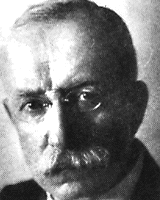 Foreign Minister Hoffmann Foreign Minister Hoffmann |
|
|
|
Post by tardis218 on Jun 19, 2016 15:10:20 GMT
Foreign Ministry, Berlin, 5 AM Gottlieb von Jagow was sitting at his office's desk. The last several days have been stressful for him and every other Minister and member of the General Staff. He had hoped for a localized war, with the Austro-Hungarian Empire simply attacking Serbia. But now, Germany was war at Russia, and trying to prevent the British Empire and France from joining. These days, he often thought about his early days in Rome, Munich, and Hamburg representing Prussia. As thinking about this, an aide opened the door and said how the Swiss ambassador had arrived. He sat up, and the man entered. He presented a letter, and Jagow read it. Success he thought. He quickly got the nearby aide to send a telegram to Ambassador von Schoen, Prince Lichnowsky, (the German minister in London) and the Kaiser.  Foreign Minister von Jagow Foreign Minister von Jagow |
|
|
|
Post by tardis218 on Jun 19, 2016 18:03:40 GMT
Kaiser's Room, 2 PM The Kaiser was turning red. His Chief of the General Staff, Helmuth von Moltke the Younger resigned. He walked into his room, and gave his papers and left the room. Right before Molke left the room, and the Kaiser read the first few sentences of the papers he yelled "Your uncle would never do such a thing!" He talked and thought for hours, until he called in General Paul von Hindenburg. He spoke to him, talking about how Moltke resigned and said "I have chosen you as new Chief of General Staff. Do you accept?" Hindenburg agreed, and a new Chief of General Staff was chosen. Chief of Staff von Hindenburg |
|








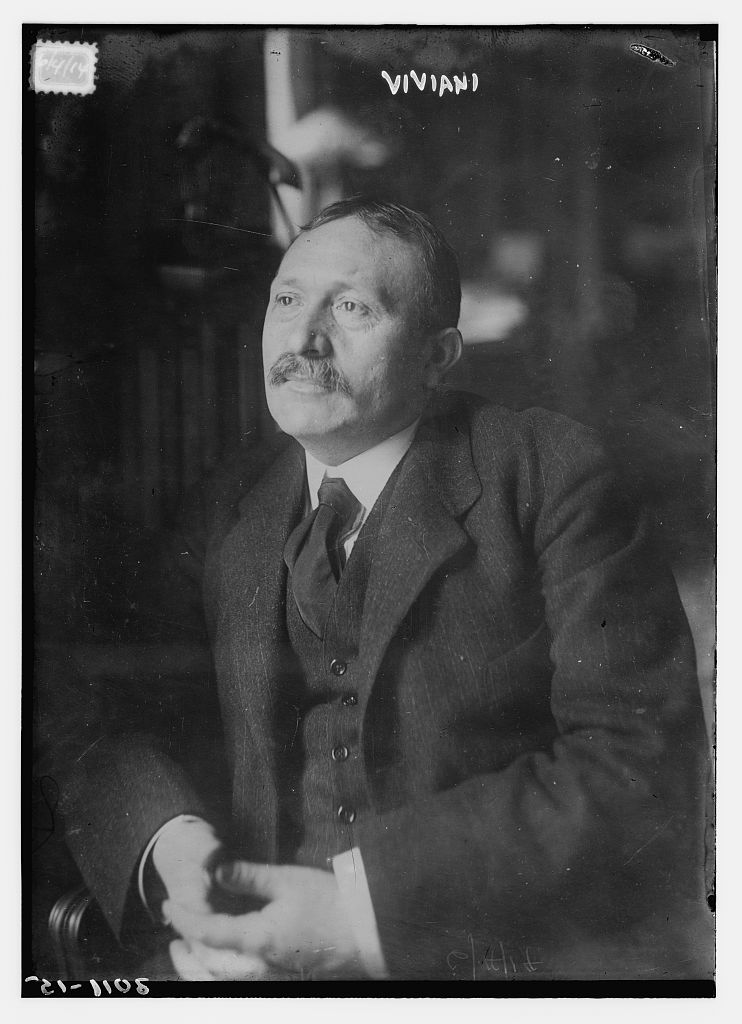
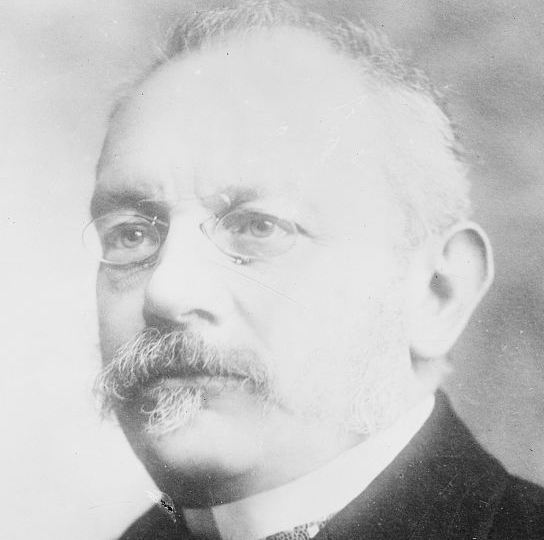

.jpg)





